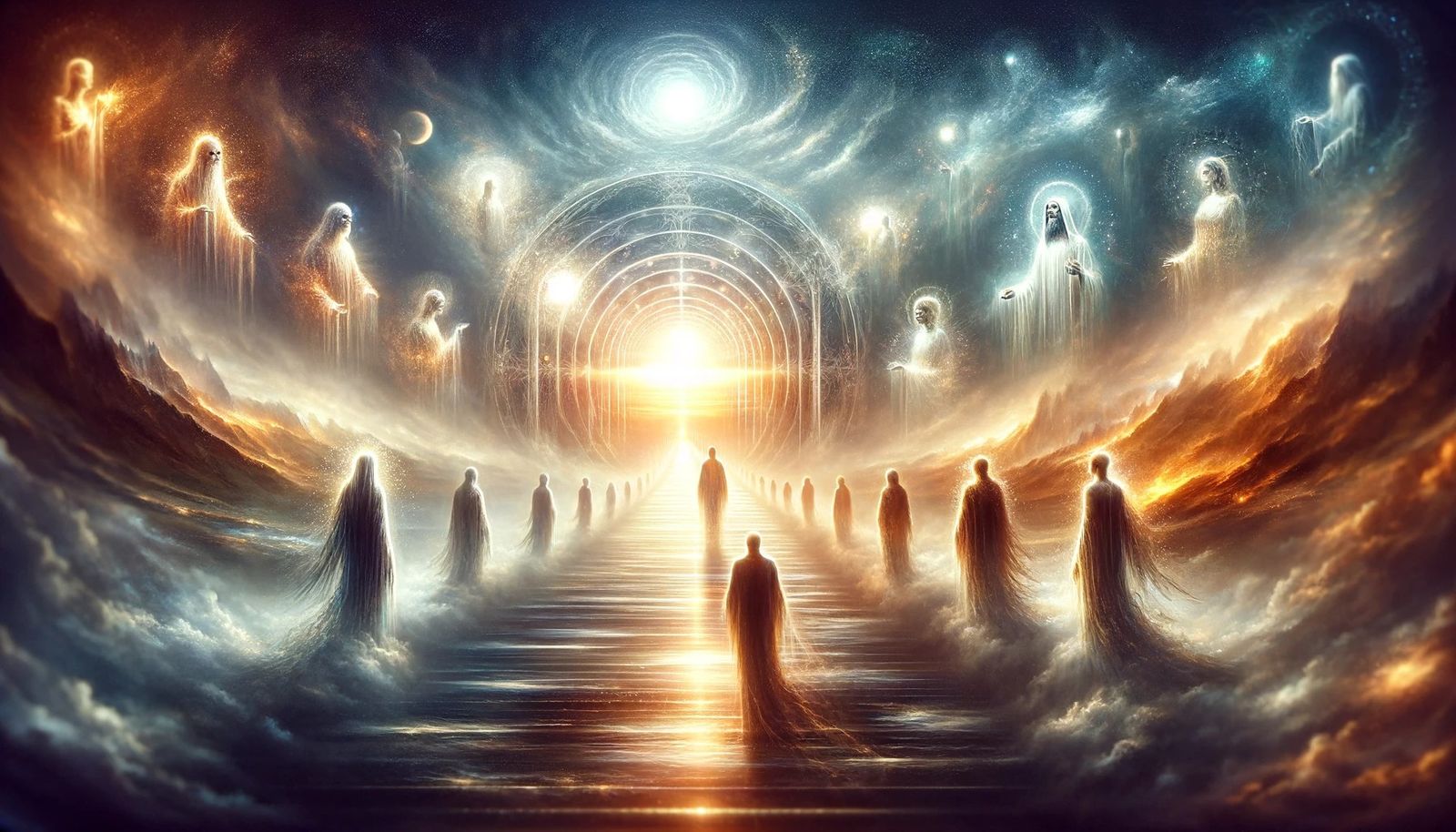
Reincarnation, a concept as mysterious as it is captivating, suggests that our souls embark on a journey far beyond the confines of our current existence. This belief, shared by millions worldwide, posits that we live multiple lives across different times and spaces. But what exactly is reincarnation? At its core, reincarnation is the philosophical or religious concept that an aspect of a living being starts a new life in a different physical body or form after each biological death. From ancient scriptures to modern anecdotes, stories of past lives and soulful journeys weave through cultures, offering glimpses into the eternal cycle of life, death, and rebirth. Whether you're a skeptic or a believer, understanding these 13 facts about reincarnation will illuminate the fascinating discussions surrounding this age-old topic.
Key Takeaways:
- Reincarnation is the belief that after death, a soul is reborn into a new body. It has ancient roots and is linked to karma in Hinduism and Buddhism. Scientific studies and popular culture also explore this fascinating concept.
- Reincarnation is a captivating topic that has influenced literature, movies, and music. It is viewed differently across cultures, with modern interpretations like past life regression therapy. It continues to inspire and intrigue people worldwide.
What is Reincarnation?
Reincarnation is the belief that after death, a soul is reborn into a new body. This concept has fascinated humans for centuries, appearing in various religions and philosophies worldwide. Here are some intriguing facts about reincarnation.
-
Ancient Roots: Reincarnation beliefs date back to ancient civilizations like Egypt, Greece, and India. These cultures had rich traditions and stories about souls returning in new forms.
-
Hinduism and Buddhism: In Hinduism and Buddhism, reincarnation is a core belief. Hindus call it "samsara," the cycle of birth, death, and rebirth, while Buddhists see it as a path to enlightenment.
-
Karma Connection: Both Hinduism and Buddhism link reincarnation to karma. Good or bad actions in one life affect the circumstances of the next.
Scientific Studies on Reincarnation
While reincarnation is often seen as a spiritual belief, some researchers have attempted to study it scientifically. These studies have produced some fascinating findings.
-
Ian Stevenson’s Research: Dr. Ian Stevenson, a psychiatrist, investigated over 2,500 cases of children claiming past-life memories. His work remains one of the most extensive studies on reincarnation.
-
Birthmarks and Past Lives: Stevenson found that some children had birthmarks or physical traits corresponding to injuries or marks from their alleged past lives.
-
Cultural Consistency: Many children’s past-life memories included details consistent with historical facts, even when the children had no prior knowledge of those details.
Reincarnation in Popular Culture
Reincarnation has also made its way into popular culture, influencing literature, movies, and television.
-
Books and Novels: Many authors have explored reincarnation in their works. For example, "Cloud Atlas" by David Mitchell weaves multiple reincarnated lives into a single narrative.
-
Movies and TV Shows: Films like "The Reincarnation of Peter Proud" and TV shows like "Doctor Who" have captivated audiences with reincarnation themes.
-
Music: Songs like "Bohemian Rhapsody" by Queen and "Karma Police" by Radiohead touch on themes of reincarnation and karma.
Reincarnation Across Different Cultures
Different cultures have unique takes on reincarnation, each adding its own flavor to the concept.
-
African Beliefs: Some African tribes believe in reincarnation, viewing it as a way for ancestors to return and guide the living.
-
Native American Views: Certain Native American tribes hold that souls can reincarnate within the same family, ensuring the continuation of wisdom and tradition.
-
Celtic Traditions: Ancient Celts believed in reincarnation, seeing it as a natural part of life’s cycle, with souls returning to learn new lessons.
Modern Interpretations of Reincarnation
In today’s world, reincarnation continues to evolve, with new interpretations and beliefs emerging.
- Past Life Regression Therapy: Some therapists use hypnosis to help individuals explore past lives, aiming to resolve current life issues by uncovering past-life experiences.
Reincarnation remains a captivating topic, blending ancient beliefs with modern curiosity, and continues to inspire and intrigue people around the globe.
A Final Look at Reincarnation's Mysteries
We've journeyed through the intriguing concept of reincarnation, uncovering its roots in various cultures, its impact on personal beliefs, and the scientific community's quest to understand it. Reincarnation offers a lens to view life and death, encouraging us to ponder our existence and the continuity of the soul. Whether seen through the eyes of faith, philosophy, or curiosity, it challenges us to consider the possibility of life beyond our current understanding. As we close this chapter, remember, reincarnation isn't just about past lives; it's a reflection on how we live today and the legacy we leave for future generations. Keep an open mind, explore different perspectives, and who knows? Maybe you'll find a piece of yourself in the stories of lives once lived.
Frequently Asked Questions
Was this page helpful?
Our commitment to delivering trustworthy and engaging content is at the heart of what we do. Each fact on our site is contributed by real users like you, bringing a wealth of diverse insights and information. To ensure the highest standards of accuracy and reliability, our dedicated editors meticulously review each submission. This process guarantees that the facts we share are not only fascinating but also credible. Trust in our commitment to quality and authenticity as you explore and learn with us.
